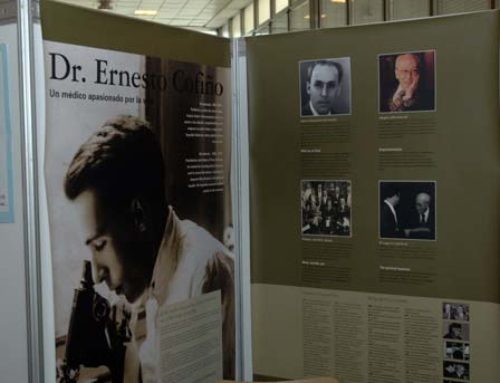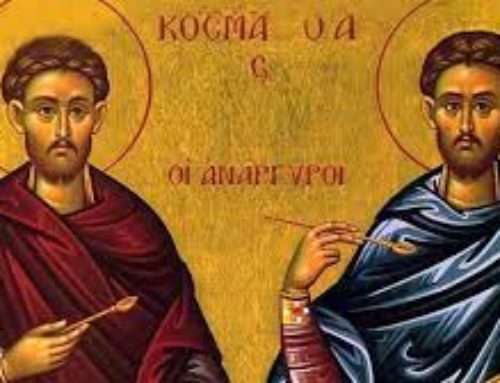|
LETTER OF THE HOLY FATHER PAUL VI,
SIGNED BY THE SECRETARY OF STATE,
TO THE INTERNATIONAL FEDERATION
OF CATHOLIC MEDICAL ASSOCIATIONS (FIAMC)
Tuesday, 31 January 1978
Dear Dr Papola,
The Holy Father was deeply interested to learn that the International Federation of Catholic Medical Associations has chosen as the theme for its Fourteenth World Congress: “Quality of Life in a Changing Society”.
Few themes are today as pressing. In spite of the sensitivity in modern civilization to questions of human rights-of which the right to life is one of the most sacred-our times are paradoxically all too familiar with attacks on life and on the dignity of life.
Modern man has reached levels of progress that a century ago were not even imagined, but he is disturbed by doubts about the value of his material progress. Does this advance truly help, he asks, to live more deeply and authentically one’s life as a human being, to be more human, or does it rather smother the genuinely human possibilities of life? And how is it that this progress is the privilege of what is in the final analysis a very limited portion of mankind, while vast sectors are living a subhuman existence?
Furthermore, science has provided means of prolonging life in circumstances that used to be considered mortal and of modifying the mental and physical quality of life. This raises the question of the extent to which it is obligatory or fitting to intervene, and what means to choose among those now available, with the aim of safeguarding the dignity of the human person and his psychosomatic balance.
These questions are of concern to all, individuals and families and also to professionals in the fields of economy, sociology, ecology, science, technology, information, education, and national and international politics. Nor can these questions be ignored by those involved in government legislation and planning.
Among the groups concerned, doctors have high importance. These “protectors, defenders and friends of humanity”, as the Holy Father has recently called them in his message for the Eleventh World Day of Peace, are in a position to appreciate scientific progress in the various branches of medicine as an instrument to be used at the service of the quality of life. In this light, no doctor who is conscious of his mission can refuse to take account of the advances of medical science.
The questions referred to above belong, however, primarily to the moral and religious’order. It would lead to a seriously mistaken notion of the quality of life and to a wrong or perverted practice, if one failed to recognize that the notion has at its very core an ethical dimension and, even more so, a theological dimension.
There is no doubt that it is the omission of these essential dimensions and the consequent false conception of life that causes the all too frequent invocation of “the quality of life” as a justification for ideological principles, norms, programmes, and then concrete initiatives that assail the dignity of life itself. Examples are found in procured abortion, infanticide, euthanasia, torture and similar practices.
On the other hand, the Catholic doctor’s faith-which is rooted in the Word of God contained in the Scriptures, is sustained by the Church’s teaching, and is lived in the ecclesial communitywill always inspire in him an exact conception and an ennobling practice of the true “quality of life”.
He knows that human life is a gift that the Lord has given us in order that we may perform a duty of service and love among our brethren and may glorify him in our earthly existence and in the existence to which he has destined us in Christ Jesus. The very first pages of Scripture present life as coming from God, who created man in his image and wishes all men to share in his divine life (Cfr. Gen. 1 et 2). This divine plan was revealed with increasing clearness in the history of salvation and was then actuated in Christ Jesus, the Lamb who gives life and guides to springs of living water (Cfr. Apoc. 7, 17).
This simple basic truth on the meaning and purpose of life, on which we are invited to reflect continually, prevents every kind of pessimism with regard to life. It teaches us that even suffering has a meaning and that death is not the end or the destruction of being but instead a participation in the mystery of him who called himself “ the life ” (Io. 11, 25). It makes us see that the spiritual has priority over the material and that prosperity, abundance and pleasure are not absolute goods. It also forbids the destruction of life and the utilization of others for one’s own will.
However, while it is God who gives life, he has entrusted man, the family and society with the function of developing the intrinsic intellectual, moral and physical qualities of each individual. Within this general function comes the doctor’s mission of preventing or correcting, with his counsel and his art, deviations afflicting the human person, of helping the human person to face the trial of suffering and death itself, without however having recourse to excessive and harmful use of mind-affecting drugs, and of contributing to educating the public to avoid irrational consumption of drugs.
The role given to the human being is to “have dominion over” the world (Gen. 1, 28). No one should imitate the rich man in the Gospel parable who had no care for the poor man named Lazarus (Cfr. Luc. 16, 19-31). Rather, each one is called to involve himself in seeing that everyone should have the means of living a truly human life. The improved conditions of life that progress makes possible today will encourage the fulfilment of the duties and the attainment of the perfection that God has determined for each of us.
As Catholic doctors, you are well aware of the grave responsibility that you have assumed principally with regard to the physical and mental health of those who put themselves in your care. The Holy Father wishes me to renew here the expression of his steem contained in his Message for the Eleventh World Day of Peace. But you also know that illness and even organic deformation in an individual do not deprive him of human dignity and of his inalienable right to life, and that therefore a human life cannot be suppressed in the name of “the quality of life”.
Furthermore, the doctor is called to attend the patient not only with scientific competence but also with love and respect. Frequently he will be called to help him to make decisions, serious ones at times. These decisions must not be based on emotional grounds but on objective criteria; they must keep in mind the Church’s teaching, which the doctor should therefore study with attention. In this respect it may be well to recall the teaching of Catholic doctrine concerning the duty of the doctor to make use of all the means at his disposal in his concrete situation in order to save human life. Although the patient can refuse the therapeutic means classified as “extraordinary”, especially when there is no hope of improving his condition, he may not reject the ordinary means and the basic services that society and medical science should place at the disposal of all.
It was certainly with conviction regarding the importance of such theological reflection that doctors from the various parts of the world have answered the invitation of FIAMC and are meeting for profound consideration of themes touching their profession. They are doing this in a spirit of openness and respect with regard to the beliefs and also with the desire of being enlightened by the Catholic faith that they have in common and by the original inspiration flowing from it. Such a meeting cannot fail to confirm its participants in their commitment as human beings, as doctors, as Christians, and as Catholics.
This is all the more important today, in a world in which all societies are in a state of change and in which the clash or combination of different philosophical and cultural ideas on the concept of the quality of life is not limited to the more developed countries alone. The Catholic doctor will proclaim his idea both by word and by example of active charity. The very fact that the FIAMC World Congress is being held in India recalls the great dedication and self-sacrifice of so many missionaries, priests, religious and laity of India and of all the socalled “mission” countries in assisting the sick. They are an admirable example of and witness to the Christian idea of the value of human life, of the respect due to it from the moment it begins and also in sickness and at the approach of death.
The Holy Father is also pleased to know that the Congress will examine as well the social problems connected with the quality of life. The doctor’s activity cannot be isolated from that of society and especially from that of the family. The Bombay Congress will not fail to go deeper into many points that can only be touched on here: the programme worked out by the organizers is proof of that.
The Holy Father’s hopes for this Congress are that all the participants may deepen their basic convictions and then spread them in medical circles. He also hopes that many Catholic doctors throughout the world, stimulated and assisted by the national Catholic medical associations and by the International Federation, may join their efforts with those of other professional people (pharmacists, psychologists and psychiatrists, social workers, teachers, and also politicians, engineers, journalists, etc.), in order that, through the intelligent and generous cooperation of everyone, modern man may not be what he has been called with cruel irony: “a being condemned to progress”, but that he may be a being for whom progress is a source of truly human life.
His Holiness expresses these wishes for you in the confidence that you will contribute in every way possible to bringing them to realization. With these sentiments, he imparts his Apostolic Blessing to you, as President, to the Ecclesiastical Advisor and the officers, and to all the members of FIAMC, especially the participants in the Fourteenth World Congress.
With personal good wishes, I am Yours sincerely.
J. Card. VILLOT |
 (Vatican Radio) On Thursday 20th December Pope Benedict XVI received in private audience the Prefect of the Congregation for the Causes of the Saints, Cardinal Angelo Amato S.D.B.
(Vatican Radio) On Thursday 20th December Pope Benedict XVI received in private audience the Prefect of the Congregation for the Causes of the Saints, Cardinal Angelo Amato S.D.B.









[…] http://www.fiamc.org/news/paul-vi-on-the-path-to-sainthood/ […]